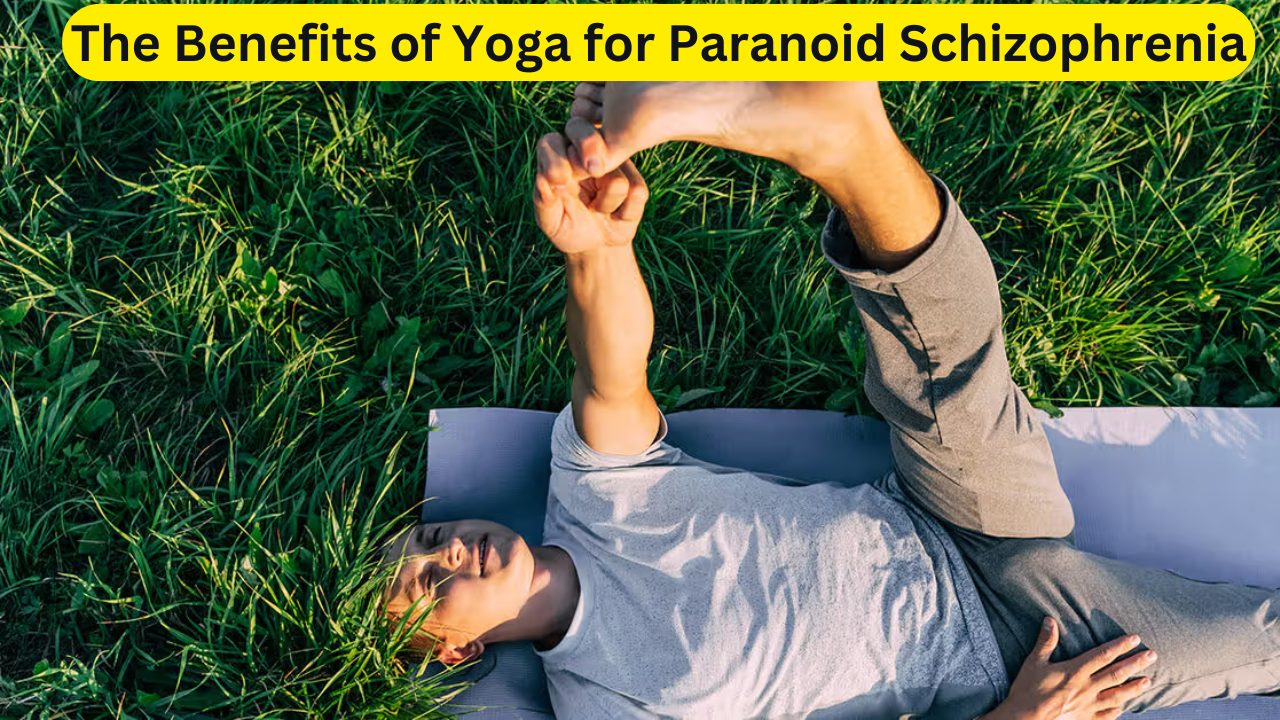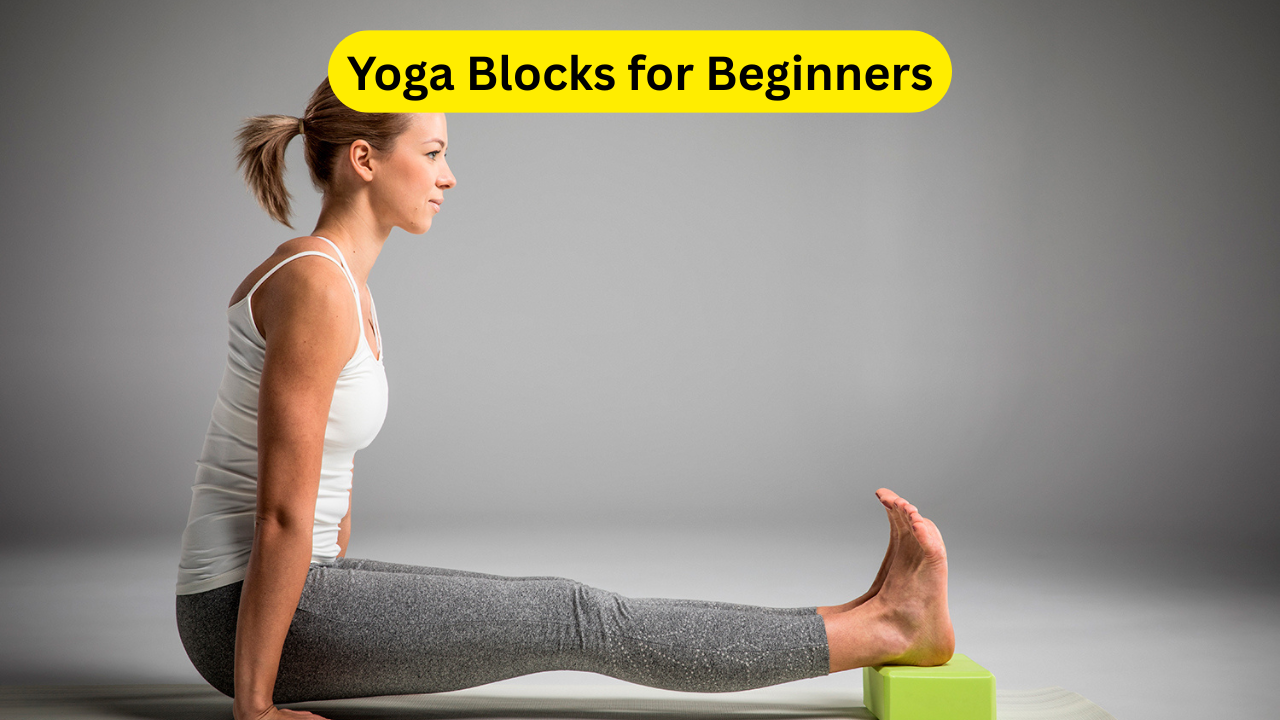The Benefits of Yoga for Paranoid Schizophrenia: Schizophrenia is a severe mental health condition that can cause a variety of symptoms, including delusions, hallucinations, impaired cognitive abilities, and social withdrawal. Among the different subtypes of schizophrenia, paranoid schizophrenia is marked by paranoid delusions, where individuals might feel that they are being persecuted or watched. While antipsychotic medications are commonly prescribed to help manage these symptoms, not everyone responds to these treatments, and some experience persistent cognitive deficits. This is where complementary therapies like yoga may offer a promising alternative or supplement to traditional treatments. Yoga, a holistic practice with deep roots in ancient India, is known for its physical, mental, and spiritual benefits.
In recent years, yoga therapy has gained attention as a beneficial intervention for those suffering from schizophrenia. This therapeutic approach focuses on improving the mind-body connection, promoting relaxation, reducing stress, and enhancing overall well-being. For individuals with paranoid schizophrenia, yoga’s deep breathing techniques, meditative practices, and physical postures can help reduce the negative symptoms that affect daily life, such as cognitive impairments, emotional instability, and social isolation. Yoga also holds the potential to mitigate the side effects caused by antipsychotic medications, such as weight gain and metabolic issues, which are common in individuals with schizophrenia.
What makes yoga an ideal complement to schizophrenia treatment is its ability to target both the mind and body simultaneously. While conventional treatments like medication and therapy focus on symptom control, yoga goes a step further by promoting neurobiological changes, improving cognition, and enhancing the emotional regulation of individuals living with schizophrenia. Although more research is needed to establish a comprehensive understanding of yoga’s full benefits, the existing evidence supports its positive impact, particularly when combined with other therapeutic interventions.
Yoga Therapy for Schizophrenia: A Holistic Approach
Schizophrenia is a multifaceted condition that affects not only mental health but also physical health and quality of life. While antipsychotic medications can help control psychotic symptoms like delusions and hallucinations, up to 30% of individuals may not find sufficient relief from these treatments. As a result, supplementary therapies such as yoga are being explored as effective complementary strategies. Yoga therapy aims to address the entire person, from improving physical health to enhancing mental clarity. By incorporating gentle movement, breath control, and mindfulness, yoga can alleviate several symptoms associated with schizophrenia, especially cognitive and negative symptoms like poor memory, lack of concentration, and social withdrawal.
The Science Behind Yoga for Schizophrenia
Several scientific studies have highlighted the positive effects of yoga for schizophrenia. A 2012 study found that yoga significantly reduced psychotic symptoms, depression, and cognitive impairments. Moreover, yoga practices were linked to improvements in social functioning and quality of life. Another large study in 2019 suggested that yoga-based interventions helped alleviate negative symptoms such as lack of motivation and social withdrawal. Additionally, these interventions were associated with improvements in emotional recognition skills, which are often impaired in individuals with schizophrenia.
Yoga’s benefits go beyond symptom management. Research has also shown that yoga can cause neurobiological changes in the brain. It helps regulate the autonomic nervous system, which controls involuntary bodily functions like heart rate and blood pressure, creating a calming effect. Furthermore, yoga practices have been found to increase oxytocin levels, a hormone associated with improved mood and social bonding. By fostering relaxation and reducing stress, yoga may enhance neuroplasticity, which is the brain’s ability to adapt and reorganize itself—a process that is often disrupted in schizophrenia.
Types of Yoga to Consider for Schizophrenia
When incorporating yoga as a treatment for schizophrenia, it is essential to choose the right type of practice. While some yoga forms emphasize deep meditation and spiritual focus, these may not be suitable for individuals with schizophrenia, especially those prone to psychosis. Instead, it is recommended to engage in practices that focus on physical movement and light breathing exercises. The following types of yoga are commonly suggested for schizophrenia:
- Hatha Yoga: This is the most common type of yoga in the U.S. It emphasizes slow, deliberate movements and postures designed to promote relaxation and flexibility.
- Iyengar Yoga: A more accessible form of Hatha yoga, Iyengar yoga uses props like blocks, blankets, and chairs to help practitioners perform asanas accurately and safely.
- Vinyasa Yoga: Also known as “flow” yoga, this style focuses on the seamless transition between poses. It is ideal for those who prefer a more active and dynamic practice.
- Sudarshan Kriya Yoga: This type involves a series of breathing techniques that have been shown to improve brain function and reduce stress. The combination of slow and forceful breathing techniques, along with chanting, enhances relaxation and mental clarity.
Click Here: Bound Angle Pose (Baddha Konasana): A Comprehensive Guide for Yoga Practitioners 2025
Benefits of Yoga for Schizophrenia
The benefits of yoga for individuals with schizophrenia are vast and well-documented. Below are some key advantages:
- Improved Cognition: Yoga has been shown to enhance cognitive functioning in individuals with schizophrenia, including memory, attention, and processing speed.
- Reduced Stress and Anxiety: Yoga helps manage stress by calming the nervous system and fostering mindfulness. This can reduce the feeling of constant stress that often accompanies schizophrenia.
- Improved Mood: Yoga boosts endorphins and promotes a sense of well-being, which can help alleviate symptoms of depression common in schizophrenia.
- Physical Health Benefits: Yoga can help combat the physical side effects of antipsychotic medications, including weight gain and metabolic syndrome. It can also improve cardiovascular health, sleep quality, and overall fitness.
- Enhanced Social Interaction: When practiced in a group setting, yoga provides an opportunity for social interaction and a sense of belonging, helping to counteract the social withdrawal often seen in schizophrenia.
Alternative Treatments for Schizophrenia

In addition to yoga, there are several alternative therapies that can complement traditional treatments for schizophrenia. Some of these include:
- Expressive Therapies: These therapies, such as art, music, and dance, help individuals with schizophrenia express their emotions and connect with others in a therapeutic setting.
- Supplements: Certain supplements, including omega-3 fatty acids, glycine, and ginkgo biloba, have shown promise in improving cognitive and negative symptoms of schizophrenia. However, it is important to consult with a healthcare provider before adding supplements to your treatment plan.
Meditation and Schizophrenia: The Risks
Although meditation can be beneficial for mental health, it is important to note that certain meditation techniques can potentially worsen or trigger psychosis in individuals with schizophrenia. For this reason, yoga practices that emphasize physical movement and breathing techniques, rather than deep meditation, are preferred.
Also Read: Exploring Cool Old Subarus: Rare Models, Features & Prices 2025
The Benefits of Yoga for Paranoid Schizophrenia Conclusion
Yoga therapy presents a valuable complementary approach to the treatment of paranoid schizophrenia. By integrating yoga into a holistic treatment plan, individuals can experience numerous benefits, including reduced symptoms, improved cognition, and enhanced emotional well-being. Yoga not only promotes physical health but also addresses the negative and cognitive symptoms of schizophrenia, which are often difficult to treat with medications alone. However, it is essential to choose the right type of yoga, avoiding intense meditation practices that could trigger psychosis. If you or a loved one is living with schizophrenia, consider consulting with a healthcare provider to explore the potential benefits of yoga as part of your treatment strategy.
The Benefits of Yoga for Paranoid Schizophrenia FAQs
1. How does yoga help in managing schizophrenia symptoms?
Yoga helps manage schizophrenia symptoms by improving cognitive function, reducing stress, enhancing mood, and promoting physical health. The breathing techniques and physical postures in yoga help regulate the autonomic nervous system, reduce anxiety, and foster relaxation, which can alleviate both positive and negative symptoms of schizophrenia.
2. Can yoga cure schizophrenia?
Yoga is not a cure for schizophrenia, but it can be a valuable complement to traditional treatments like medication and therapy. It helps manage symptoms, reduces stress, and improves quality of life, making it a holistic approach to mental health.
3. Is there a specific type of yoga recommended for schizophrenia?
Yoga practices that focus on movement, postures, and light breathing techniques are recommended for individuals with schizophrenia. Styles like Hatha, Iyengar, and Vinyasa yoga are ideal, while meditation-heavy practices like Kundalini yoga should be avoided due to the risk of triggering psychosis.
4. Can yoga help with the side effects of antipsychotic medications?
Yes, yoga can help alleviate some of the physical side effects of antipsychotic medications, such as weight gain, metabolic syndrome, and cardiovascular issues. It also promotes better sleep and overall physical fitness.
5. How do I get started with yoga for schizophrenia?
If you’re interested in yoga for schizophrenia, start by consulting with your healthcare provider to ensure it complements your current treatment plan. You may consider joining a beginner’s yoga class focused on gentle movement and relaxation or seek out a certified yoga therapist with experience working with individuals with mental health conditions.







